This year, Samsung held the Galaxy Global New Product Launch Conference. The new Galaxy S23 series smartphones and Galaxy Book 3 series laptops were officially unveiled at the event. In terms of core specifications, the entire Galaxy S23 series is equipped with the second-generation Snapdragon 8 mobile platform upgrade, specifically the second-generation Snapdragon 8 mobile platform (for Galaxy).
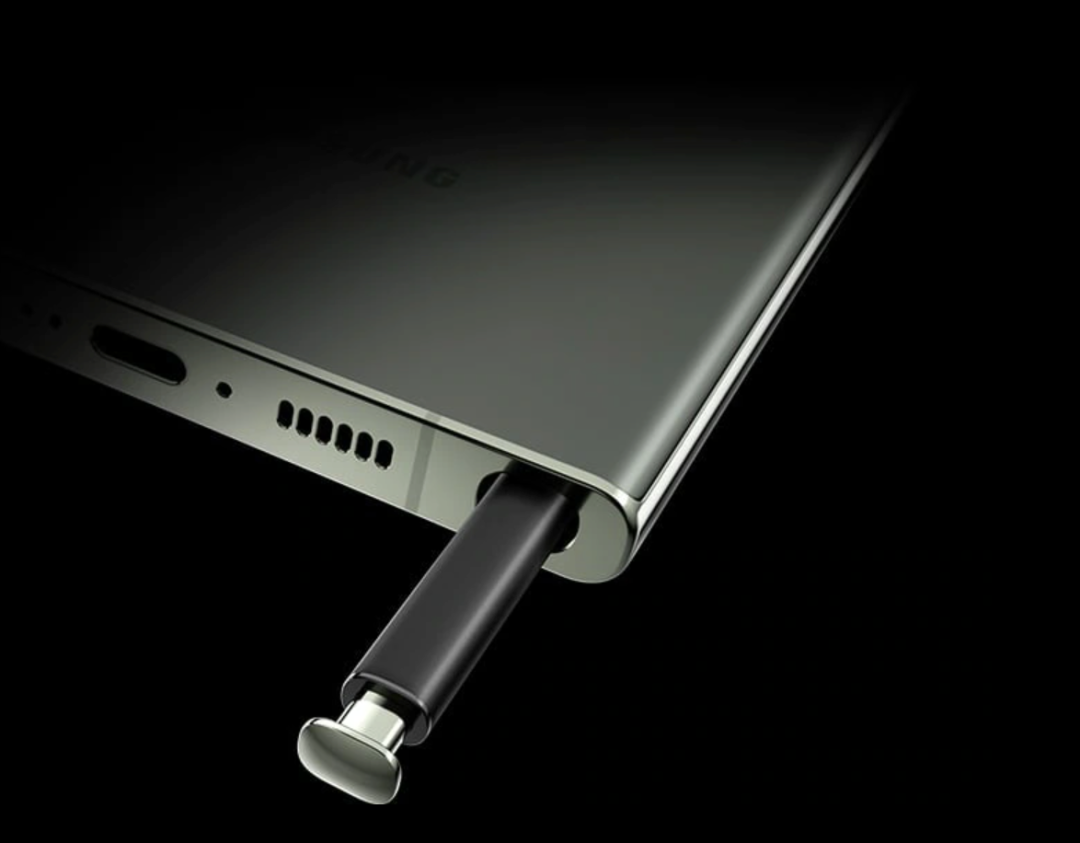
At the same time, in this generation of flagship updates, Samsung changed its chip deployment strategy. It is reported that in previous flagship series, Samsung generally introduced versions equipped with self-developed chips. However, in the Galaxy S23 series, Samsung has equipped the entire series with the second-generation Snapdragon 8 mobile platform upgrade in more markets. This has led to speculation about whether Samsung will directly abandon the deployment of self-developed chips for its devices. However, subsequent reports indicate that Samsung has not given up on the advancement of self-developed chips, and related products are still under development.

According to previous leaks, the Exynos 2400 will feature a 10-core CPU, with GPU performance being twice that of the Exynos 2200, and it will adopt an improved version of its own 4nm process. The specific specifications include one Cortex-X4 core with a frequency of 3.1GHz, two Cortex-A720 cores with a frequency of 2.9GHz, three Cortex-A720 cores with a frequency of 2.6GHz, and four Cortex-A520 cores with a frequency of 1.8GHz.
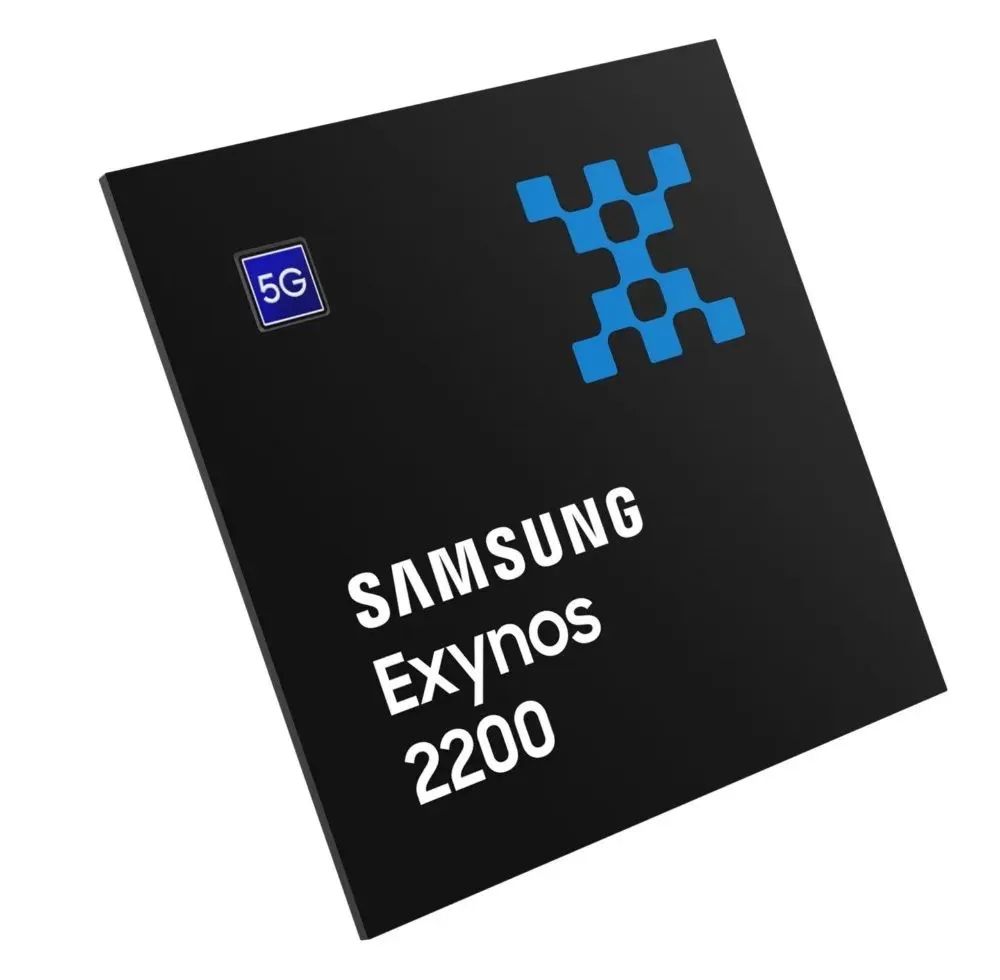
In comparison, the recently leaked Qualcomm Snapdragon 8 Gen 3 will be built on TSMC’s N4P process, featuring one Cortex X4 super core at 3.3GHz, three A720 big cores at 3.15GHz, two A720 big cores at 2.96GHz, and two A530 small cores at 2.27GHz, equipped with an Adreno 750 GPU. Additionally, the Exynos 2400 is said to only support 64-bit applications and cannot run older 32-bit applications, similar to the leaked Qualcomm Snapdragon 8 Gen 3.
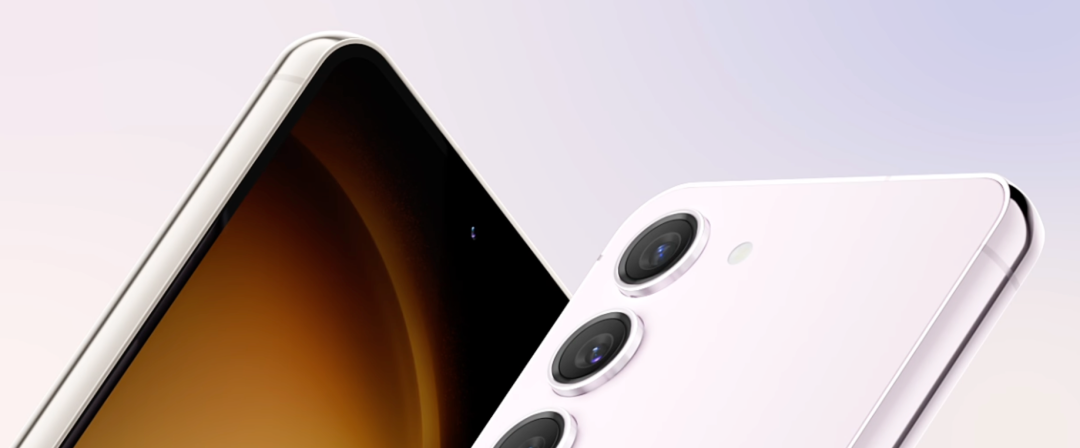
Furthermore, there are reports that the Samsung Exynos 2400 chip will be compatible with UFS 4.0 storage and LPDDR5X RAM, with a bandwidth of 8.5Gbps, and the built-in ISP can handle 8K 60fps video. In terms of graphics, the Exynos 2400 will be equipped with the Xclipse 940, which has twice the number of graphics computing units compared to RDNA 2.
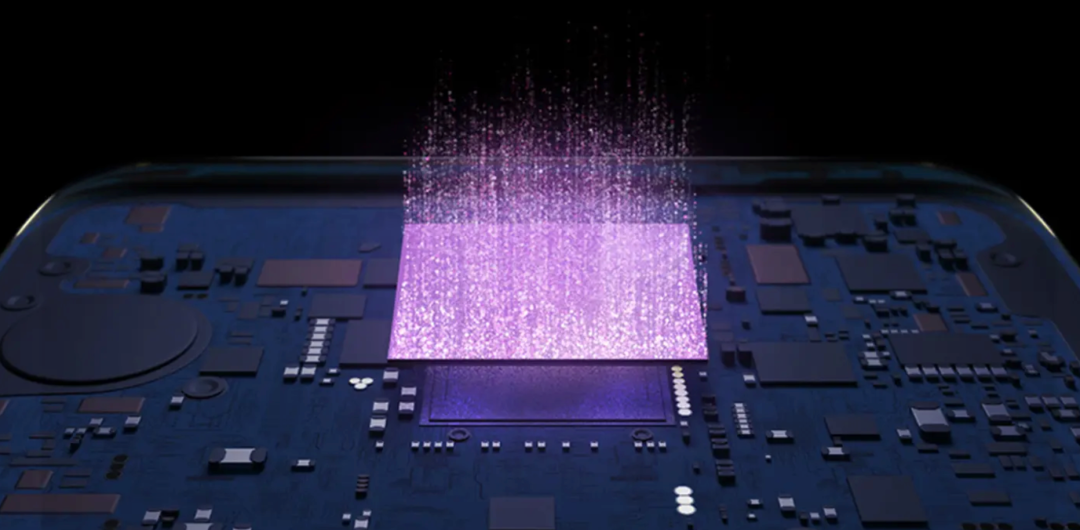
The AI computing performance of the Exynos 2400 has also improved compared to previous products. In terms of connectivity, the Exynos chip will be equipped with the Exynos 5300 modem launched earlier this year, which has a maximum download speed of 10Gbps on 5G networks and an upload speed of up to 3.87Gbps. It supports both NSA and SA 5G networks and is compatible with millimeter-wave and sub-6GHz networks, comparable to the Snapdragon 8 Gen 2’s 5G modem.
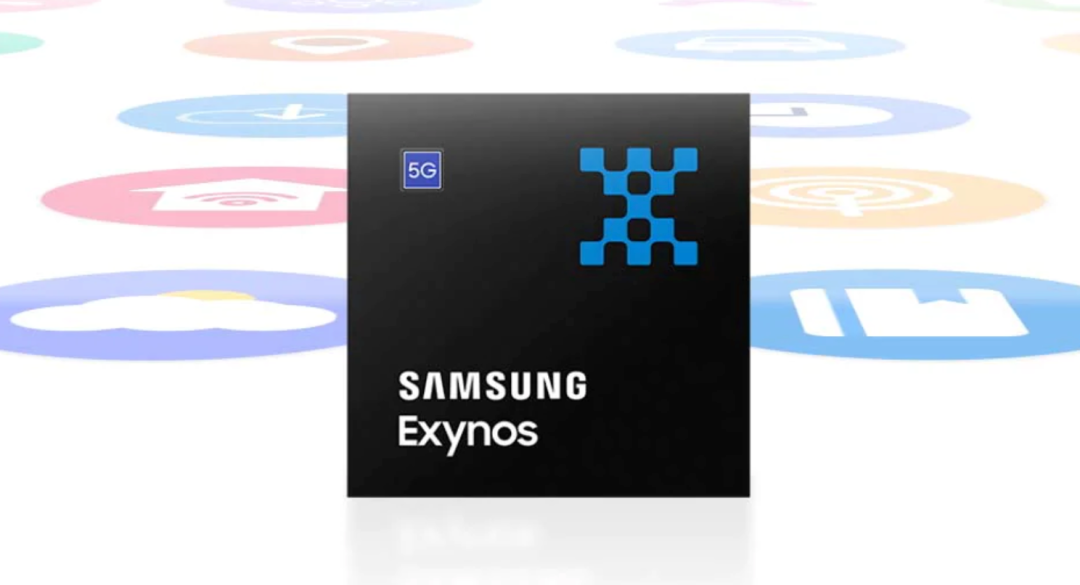
Additionally, related news indicates that the new Samsung Exynos 2400 chip will be compatible with bidirectional satellite connectivity for emergency calls and messaging in areas without network coverage.
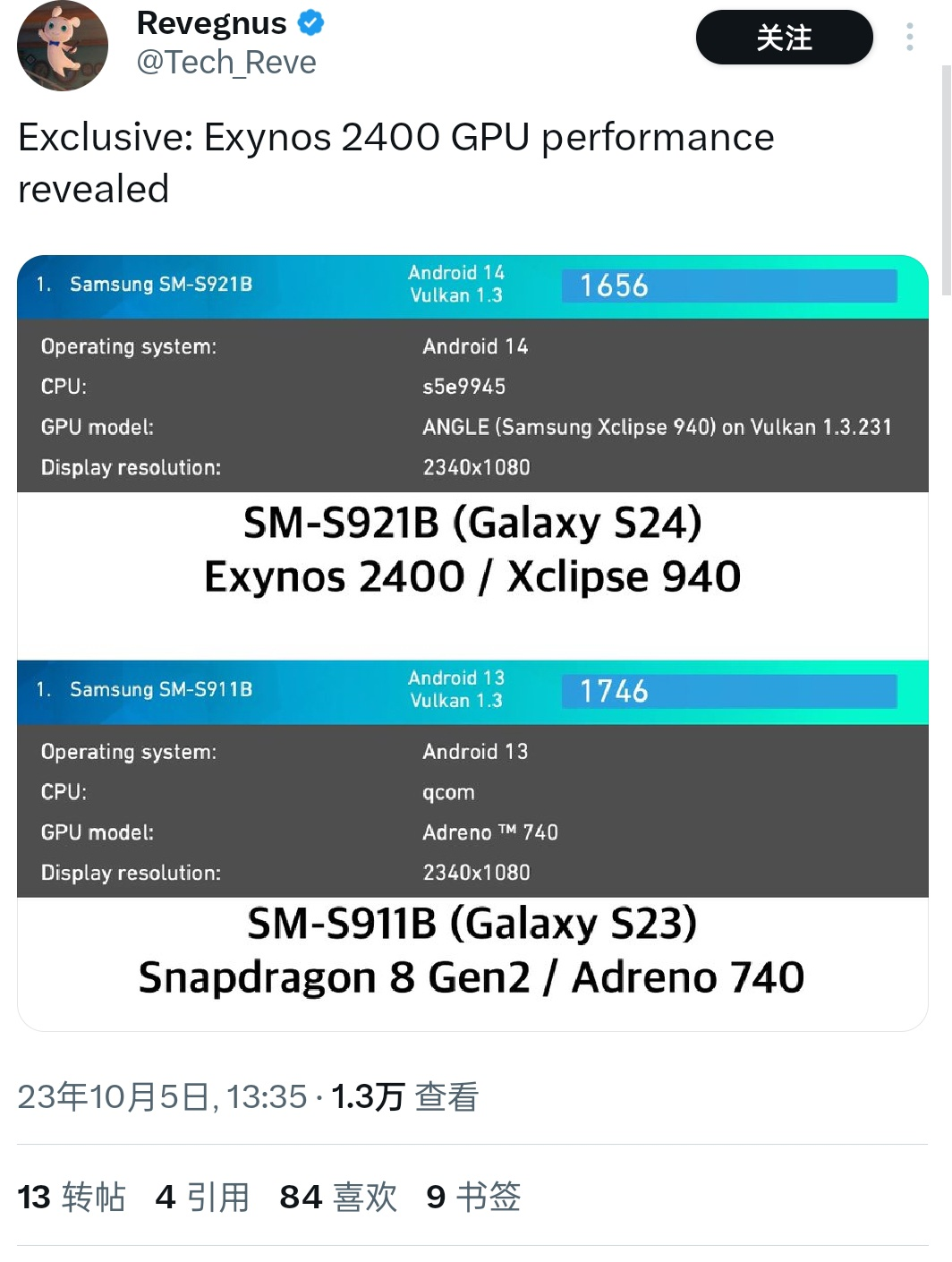 (Image source: IT Home)
(Image source: IT Home)
Today, related media reported that the source @Tech_Reve shared the first GPU test data of the Exynos 2400 processor. According to the Powerboard Vulkan 1.3 test results, the GPU score is still slightly lower than that of the Qualcomm Snapdragon 8 Gen 2. In the benchmark screenshot, the Galaxy S24 equipped with the Exynos 2400 chipset scored 1656 points, while the Galaxy S23 equipped with the Snapdragon 8 Gen 2 scored 1746 points, a difference of 90 points.
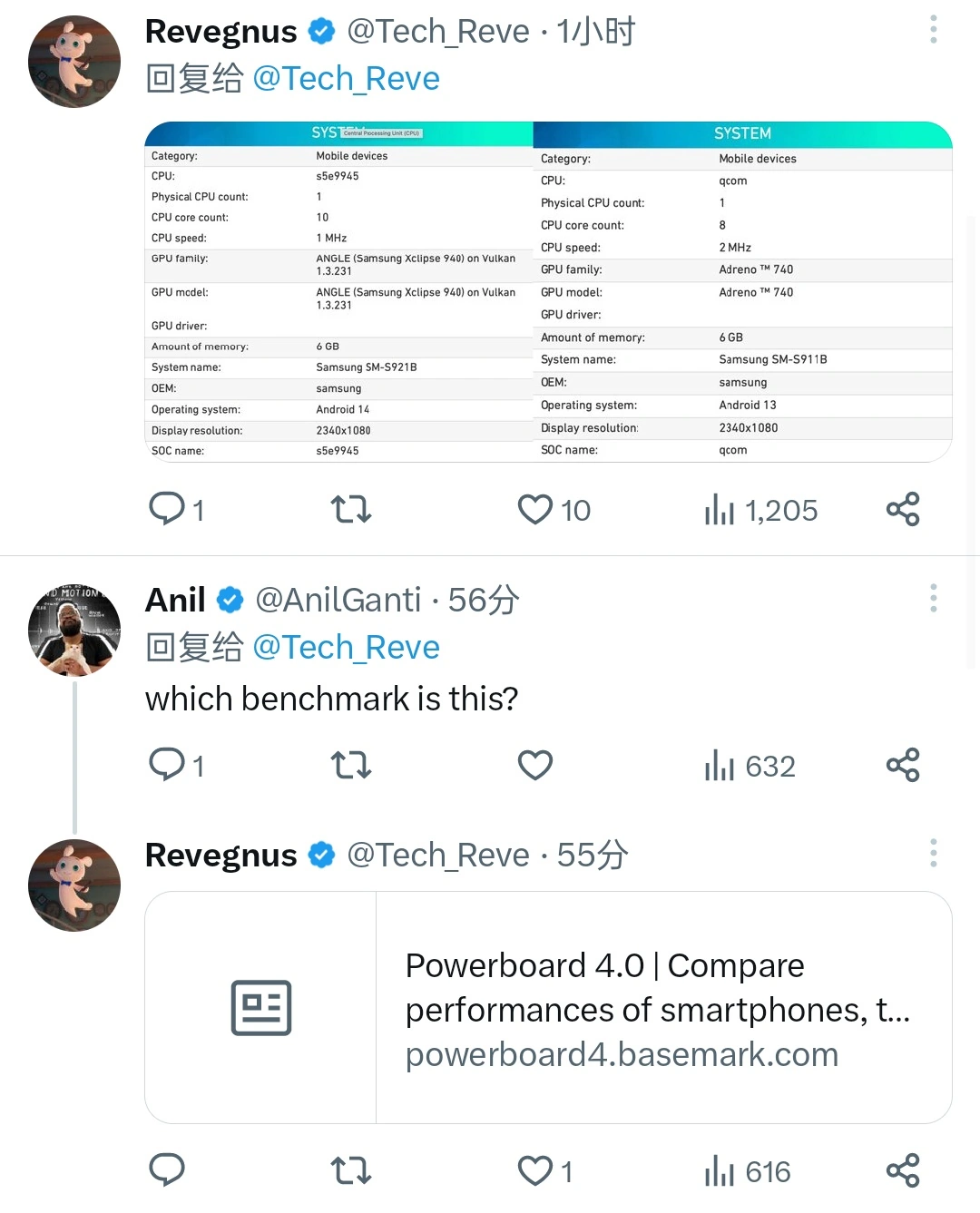 (Image source: IT Home)
(Image source: IT Home)
This means that the new Exynos 2400 is comparable in GPU performance to the Snapdragon 8 Gen 2 for Galaxy, but there is still some gap compared to the upcoming Snapdragon 8 Gen 3. Reports indicate that Samsung is expected to use its own Exynos 2400 processor for the Galaxy S24 series in multiple markets. However, the Chinese version of the Samsung Galaxy S24 series is likely to still be equipped with a customized Snapdragon 8 Gen 3 chip, specifically the third-generation Snapdragon 8 for Galaxy. Of course, given that there is currently no definitive official news, the actual product deployment situation remains to be confirmed.

Recent ArticlesFeatured:Apple’s 5G modem chip delayed for another 3 years, when will it be ready?How does the first 3nm chip perform? Which manufacturers will follow?Android camp processors are about to be updated, which flagship are you more looking forward to, Snapdragon or Dimensity?Huawei’s return, Xiaomi’s car manufacturing, and the different choices of OV, analysis of the landscape of major giantsiPhone 16 leaks are here, what will next year’s Apple new machine look like?Huawei vs Apple, the high-end market is changingBusiness Cooperation: [email protected]